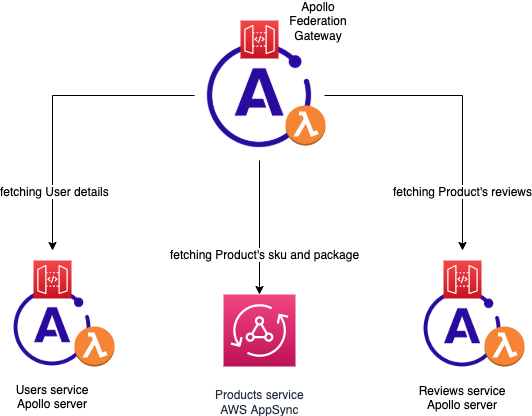Front-End Web & Mobile
Category: Front-End Web & Mobile
Building a social network app with Amplify Form Builder and Storage
For apps that are heavily image dependent, like social media apps, managing file upload and access is core to the app’s success. Integrating with all the services needed for cloud-based file management and access can be painful, but Amplify Studio can provide you with tools to integrate quickly and easily with AWS S3 storage. In […]
AWS Amplify JavaScript Library Announces Leaner Bundles and Faster Load Times
We are excited to announce that the AWS Amplify JavaScript library has significantly reduced the bundle size for critical categories, including Auth, Storage, Notifications, and Analytics. For your users, this translates into faster load times when using your apps. These reductions in bundle size are in response to popular demand from our community. We are […]
AWS AppSync Merged APIs Best Practices: Part 2 – Schema Composition
In the AWS AppSync Merged API – Best practices series, we cover important topics for developers, architects, and security engineers who are creating and managing AWS AppSync Merged and Source APIs. This multi-part series discusses best practices on schema composition, deployment and testing, security and subscriptions for Merged APIs. AWS AppSync offers Merged APIs, which […]
Apollo GraphQL Federation with AWS AppSync
This article was written by Florian Chazal, Senior Specialist Solutions Architect, AWS Update (August 2022): This blog post has been updated to comply with the new Apollo Federation spec v2.0. If you are migrating from v1 check the official documentation. Apollo Federation is an architecture and specification used to build and connect multiple distributed backend […]
Client-side Caching Strategies for a Next.js app with AWS Amplify
This post builds on the initial posts in this series, Build a Product Roadmap with Next.js and Amplify, where we built an admin page for product managers to login and update the roadmap and then updated the app to add storage of documents. In this post, we’ll adapt the product management application to include a caching layer […]
Share code between Next.js apps with Nx on AWS Amplify Hosting
In this post, we will explore the capabilities of AWS Amplify Hosting to interface with monorepos, specifically Nx, and deploy the frontend applications that reside in them. We’ll learn the benefits of using a monorepo through an example of multiple banking websites that use the same mortgage calculator made up of libraries and components that […]
Announcing watchOS and tvOS Support on AWS Amplify Library for Swift
June 27, 2024: This blog post covers Amplify Gen 1. For new Amplify apps, we recommend using Amplify Gen 2. You can learn more about Gen 2 in our launch blog post. We are excited to announce that Amplify Library for Swift now supports watchOS and tvOS platforms! Amplify Library for Swift allows developers building […]
New: Introducing the AWS Amplify Badge Program
AWS Amplify is a complete solution that lets front-end web and mobile developers easily build, ship, and host full-stack applications on AWS, with the flexibility to leverage 175+ AWS services as use cases evolve. Learn more about Amplify or try it on the AWS Free Tier. Earn badges for your contributions to AWS Amplify We are excited to […]
5 Next.js features that are better with AWS Amplify
Next.js is a popular React framework that enables server-side rendering and static site generation for React apps. When combined with AWS Amplify, a set of purpose-built tools and features that enables frontend web and mobile developers to quickly and easily build full-stack applications on AWS, developers can build some really powerful apps. Here are 5 Next.js features that […]
Next.js API Routes with AWS Amplify
Next.js is a popular React framework that enables server-side rendering and static site generation for React apps. It makes building full-stack React apps incredibly simple. Developers love Next.js over other solutions because it handles a lot of the difficult configuration required for server-side rendering and static site generation automatically. It has builtin support for styling, […]









